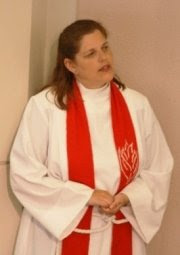Along with the rest of the Diocese of Western New York, St. Paul's is reading Flunking Sainthood by Jana Reiss.
The book is the memior of the journey of the author as she tries a different spiritual practice each month.
The first chapter lays out the premise - that a different practice will be tried each month, that she will look at some of the writing about that practice and that she will blog about it.
I was really struck by her reflection on the scene from Exodus where the people of Israel are given the 10 commandments and reply "All that you have said we will do and hear" and that through the centuries the rabbis have taught that we can't really hear God until we have tried to do what God calls us to.
I've been really reflecting on that - words take on more and deeper meanings where there is experiance that connects with them. I can listen to someone talk about the Grand Canyon, for example, but having travelled down to the bottom myself, I hear the story differently. It's one of the reasons I like our cycle of readings. When the Gospel reading from three years ago comes up again, I hear it differently because I've had different experiances since I preached on it the last time.
The first month of her practice is February and she picks fasting.
One of the things I remember being taught about fasting is that one of the original purposes of fasting in the Christian world was to try to live like the poor. To eat what the poor ate. That got me thinking about what the poor eat in our world. It isn't fish anymore, it certainly isn't vegetables, at any rate fresh vegetables. Actually the poor in our world tend to eat canned and processed food because it's what available and what they can afford.
I wonder what a fast would be like if we tried to eat like the poor today.
Subscribe to:
Post Comments (Atom)

No comments:
Post a Comment